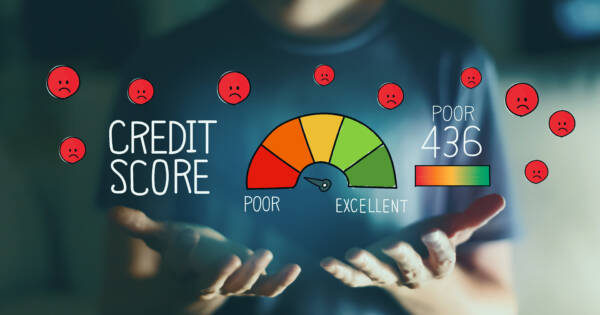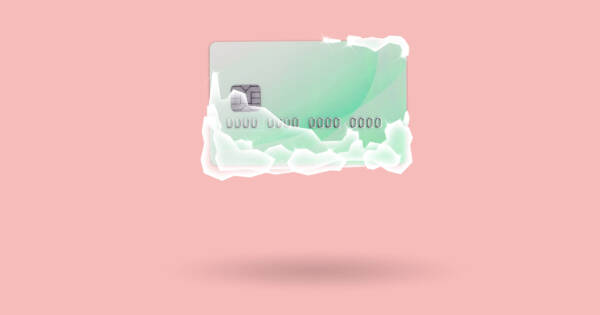Credit is an important part of your finances. Having a strong credit history and a positive credit score will make your life much easier. It ensures that you can get affordable loans, whether it be a mortgage, a car loan, or something like a credit card or line of credit. Your credit history and score also determines the loan terms you receive. The better your credit, the more favorable terms and interest rates you will get. However, not everyone has great credit. Some actually don’t even have poor credit.
According to the three major credit bureaus, Experian, TransUnion and Equifax, there are currently 26 million Americans who have no credit at all. No credit history to look back on. No credit score to evaluate. It can be a real problem if you’re trying to finally get your finances back on track. You don’t qualify for a car loan or a mortgage or even a credit card. So now what do you do?
Building credit is more complicated than you may realize. It’s also not quick. In fact, it’s a classic chicken or the egg conundrum. In order to get credit, you must have a credit history. This is a clear contradiction. How can you build a credit history if nobody will give you credit? How can you get credit without a credit history?
Fortunately, there are several ways to start building your credit. It’s a slow and steady process, but it can be done. Here are seven things to try in order to establish some credit for yourself.
Report Rent and Utility Payments
Unbeknownst to many, you can actually report your rent and utility payments to some credit score companies. They will use those payments to build a consistent and positive credit history. If you pay your bills on time every month, it shows that you are financially reliable. That’s a pretty important part of building credit.
More importantly, it can help you build a credit history. That history can be used to secure more credit down the road. Plus, on-time payment of utility bills can also be used to build a positive credit score. Ask your phone, water, electric, gas and cable company if you can report your payments to credit bureaus where you live. It’s a smart and easy way to build credit history from nothing.
Use a Co-Signer
While you may not have a credit history, chances are that you know someone who does. Maybe it’s a relative, best friend, or a trusted neighbor. If anyone like that is willing to be a co-signer for you, it can help you to secure a credit card, line of credit or other type of loan.
You need to be aware that a co-signer is taking financial responsibility for you, if they agree. They are promising to repay any debts if you default on your payments. So, this is not a request you should make of a casual acquaintance. You also shouldn’t consider it as someone covering your debt if you suddenly aren’t able to.
However, if you can find someone who you share mutual trust with, then getting a co-signature is often one of the best and quickest ways to gain access to credit. Keep in mind that not all types of credit accept co-signatures — many credit cards won’t, for example. So be sure to do the proper research before you ask anyone.
Become an Authorized User
Another way to take advantage of someone else’s positive credit history is to become an “authorized user” on their credit card. If you know someone – often a parent or sibling – who has a good credit history and high credit score, they can make you an authorized user on their credit card. This enables you to use their credit card even though the primary cardholder is still responsible for making monthly payments on the card.
The good news that credit reporting bureaus will see your name attached to a credit account in good standing. Even if you never actually use the card, being an authorized user will start building you some credit of your own. If you do use the card, make sure you make arrangements to pay what you owe. It’s also possible to do this with a complete stranger. However, there’s a lot of sketchiness around this practice. While it’s not technically illegal, we wouldn’t advise it.
Get a Student Credit Card
Student credit cards are designed to help young adults establish a credit history. While their terms often aren’t great, they accept almost everyone who applies. If you’re smart, you can already have a little bit of credit before you even enter the workforce.
Student credit cards often come with tighter parameters than most other types of credit cards. This includes lower limits, higher interest rates, and not much in the way of rewards or points. If you’re young and looking to establish some credit history for yourself, you may want to consider a student credit card.
In some cases, it may be the only type of credit card you can get initially. Be mindful though. You must be conscientious with any credit card. It’s easy to make foolish financial decisions when you’re young, including maxing out multiple credit cards. Don’t apply for one unless you can pay the balance off in full each month – before the interest charges are applied.
Apply for a Credit-Builder Loan
A “credit-builder loan” is a bank loan that is used specifically to build a credit history. It’s not like a normal loan though, so make sure you know all the details first. The bank typically puts the money you borrow into a locked account. Then you make regular payments on the money until the full amount borrowed is repaid. When you have completed all the payments, the money is released to you. Sometimes this can be done in stages, like 25% or 50% of the total amount being released when you hit those marks.
If this sounds like a complicated way of just saving some money, you are correct. The bank is not really loaning you anything. It’s your own money that you just pool into an account, in order to access a lump sum at the end. It’s generally a rotten deal for consumers. The one positive thing about credit builder loans is that they will actually do what they claim — establish and strengthen your credit.
Your bank will report your regular payments to credit bureaus. As long as you don’t miss any payments, your credit score should improve. Credit unions and community banks tend to offer these types of loans more often than traditional banks. You need to also be aware of shady financial institutions who offer these kinds of loans, but with outrageous terms. If you’re trying to save up for a big purchase, there are many better options than this. However, if you’re desperate to build yourself a little bit of solid credit, a credit builder loan can help.
Get a Store Credit Card
Department stores (and other retailers like gas stations) often offer branded credit cards that can only be used at their outlets. Like a Sears card, when Sears was still a thing that existed. These cards are often made available to just about anyone, even if you have no credit history at all. They typically come with low limits and high interest rates. However, if used responsibly, these store credit cards can build you a credit history.
Make sure you only use these cards as you would cash. In other words, don’t buy more than you would if you had cash in your pocket. Of course, be sure to pay off the entire bill at the end of each month. Also, go out of your way to ask if the store reports your credit history to the credit bureaus. You only get credit for using the store credit card if your activity is reported to the bureaus.
Apply for a Secured Credit Card
A “secured credit card” is one that requires you to make a security deposit first. It’s usually for the entire limit of the card. With a small deposit (usually $500 or 1,000), you can obtain one of these secured credit cards. The bank can access the $500 deposit you made in the event that you fail to pay your credit card bill at the end of the month. Your credit limit will be the amount you deposited, so there’s no real risk for the lender.
Although the card can’t be used to make big purchases, it will help build your credit. Just use it sparingly, say a couples times a month for a tank of gas or some online shopping. Then promptly pay off the balance so that the security money remains untouched. Your credit will slowly start to show a reliable history, and your score will rise.
These cards often have a set term before they become a regular credit card. After 12-to-24 months, many of these products will refund your security deposit. They then revert to a traditional credit card, where you can get the money up front to make purchases, and then pay it off afterwards. Continue to be responsible with your card, and you’ll eventually qualify for higher limits and lower interest rates.
 Shutterstock
Shutterstock







